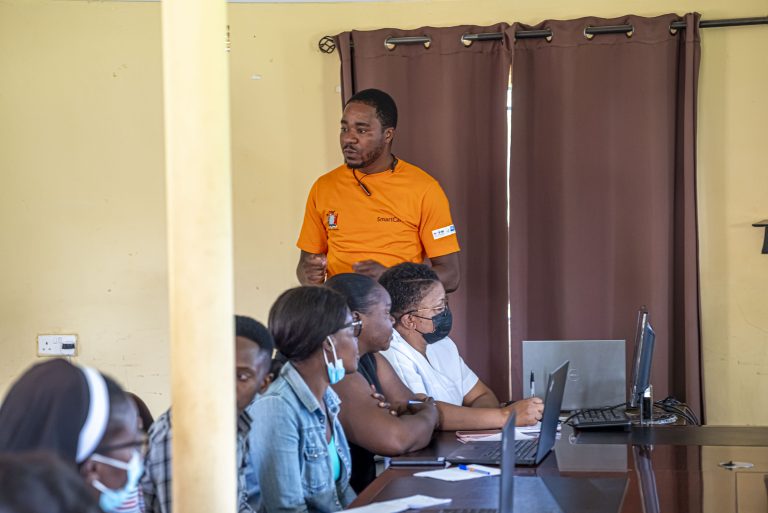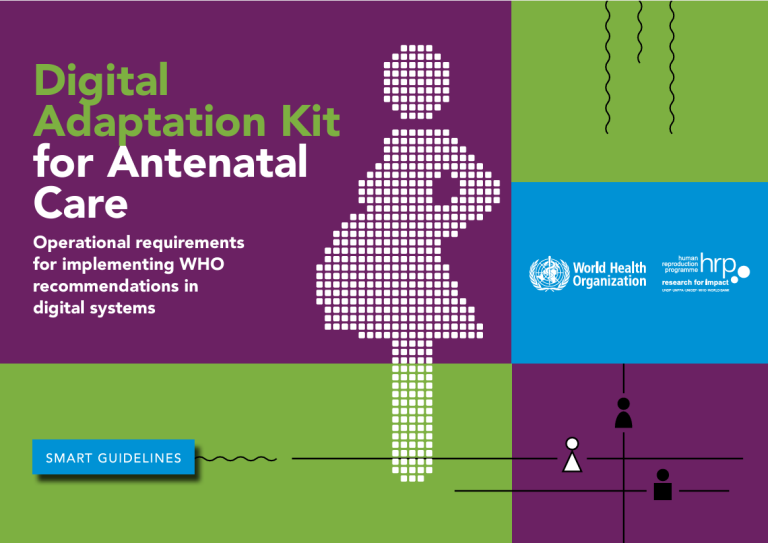Amidst the challenges posed by cholera outbreaks and sometimes devastating floods, the Zambian Ministry of Health, in collaboration with the Centers for Disease Control and Prevention (CDC) and the United States Government President’s Emergency Plan for AIDS Relief (PEPFAR)-funded project Strengthening Capacity for Health Information Systems Sustainably (SCHISS), has demonstrated unwavering determination to improve healthcare service provision and enhance patient care.
Nsumbu
In the town of Nsumbu, situated in the Northern Province of Zambia, heavy rainfall has always presented challenges to the local community. However, in April 2023, Nsumbu faced a particularly difficult situation when it was hit by both devastating floods and a cholera outbreak. Despite these temporary adversities, the Zambian Ministry of Health, in collaboration with the Centers for Disease Control and Prevention (CDC) and the United States Government President’s Emergency Plan for AIDS Relief (PEPFAR)-funded project Strengthening Capacity for Health Information Systems Sustainably (SCHISS), demonstrated unwavering determination to improve healthcare service provision and enhance patient care. Despite the adverse circumstances, the Ministry and its partners showed resolute commitment and resourcefulness in ensuring that healthcare professionals in Nsumbu would not be left behind, equipping them with the necessary knowledge and skills to embrace the new electronic healthcare system, known as the SmartCare Plus system.
SmartCare
The overarching objective of SmartCare Plus which upgrades the former SmartCare Legacy system is to revolutionize healthcare service provision by optimizing clinical workflows and enhancing the Clinical Decision Support System (CDSS), ultimately improving the safety and quality of care in health facilities. After successfully conducting trials in 31 healthcare facilities across the country, the Ministry of Health, in collaboration with CDC and the SCHISS Project, has embarked on a nationwide rollout of SmartCare Plus. Nsumbu Rural Health Centre was to be one of the targeted facilities under this roll-out
Nsumbu Rural Health Center Training
Located in Nsama District and situated near the shores of Lake Tanganyika, the Health Centre, faces its own set of unique challenges. The wet season in the district is characterized by very heavy rainfall, and often subsequent flooding that disrupts daily life and often exacerbates the spread of cholera.. In providing coverage for 26% of Nsama District’s population, Nsumbu Rural Health Centre is pivotal in the district’s healthcare landscape. The facility’s geographical location, with 90% of its catchment population residing along the shores of Lake Tanganyika, presents significant sanitation and clean drinking water challenges. However, undeterred by these adversities, the SmartCare Plus implementation program planned for Nsumbu Rural Health Centre pressed on.
In the face of a challenging environment, implementation activities were meticulously planned and executed to ensure the safety and well-being of , the technical teams on the ground, deployed trainers and that of trainees. Precautionary measures aligned with cholera guidelines, were implemented to mitigate the spread of the disease during the course of deployment. The facility had previously conducted training sessions for community key gatekeepers (headmen) on cholera and engaged Community-Based Volunteers, who worked hand in hand with the facility’s public health unit to promote strict adherence to hygiene practices.
Prior to staff training, a pre-training meeting was held with Mr. Alfred Mvula, the facility In Charge. During this meeting, it became evident that the facility also served as a Cholera center, with several staff members deployed to address the outbreak. A strategic plan was then devised to ensure that training could still go ahead seamlessly amidst the ongoing pandemic. The altered workflows caused by the outbreak necessitated the relocation of several departments to alternative locations.
The SmartCare Plus training was officially opened by Mr. Syrus Kalaba, the District Health Information Officer for Nsama District on behalf of the District Health Director, Dr. Vanaciol R. Banda. The training itself followed a dual approach, combining classroom sessions with on-the-job training (OJT), allowing for uninterrupted service delivery. Trainers maximized their time, even adjusting work schedules and extending working hours, to ensure that each staff member received comprehensive hands-on training. The training sessions focused on the SmartCare Plus system sensitizing participants on how the system will enhance patient care and equip them with advanced tools and technologies that enable more accurate diagnoses, individualized treatment plans for patients, and proactive monitoring of patient health.
To ensure the well-being of the deployed trainers, Mr. Kalaba recommended accommodation at Jalusi Guest House, a flood-free location with access to chlorinated borehole water—the sole establishment providing such amenities in the area. Additionally, strict instructions were given to avoid consuming food prepared outside the lodge and to rely on mineral water, even for brushing of teeth. The use of public toilets was discouraged, further safeguarding against the spread of cholera. These precautionary measures proved highly effective, and all trainers left Nsumbu without any incident.
Despite facing unique challenges, such as sanitation and clean drinking water issues, the facility emerged as a beacon of resilience and commitment to embracing technological advancements in healthcare.
The success achieved in Nsumbu is a testament to the collaborative efforts of the Ministry of Health, CDC, and partners. Their unwavering determination and adaptability have paved the way for a transformative future in healthcare service provision. By overcoming the hurdles posed by floods and a cholera outbreak, the training in Nsumbu stands as a shining example of how technology can empower healthcare professionals and enhance patient care, even in the most challenging circumstances.



